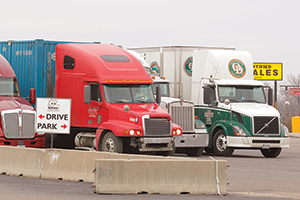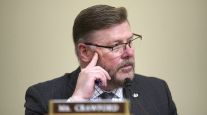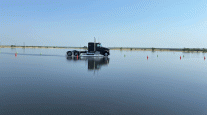National Coalition Begins Search for Solutions to Truck Parking Problems Across the Country

The National Truck Parking Coalition met for the first time last month in hopes of coming up with solutions to the nationwide shortage of truck parking.
Meeting in Washington, D.C., under the leadership of Deputy Transportation Secretary Victor Mendez, representatives from the American Association of State Highway and Transportation Officials, American Trucking Associations, the Commercial Motor Vehicle Safety Alliance, Natso, the Owner-Operator Independent Drivers Association and other groups began brainstorming about ways to attack the issue.
“Right now, we’re in the information-gathering stage,” said Darrin Roth, ATA’s vice president for highway policy, who attended the meeting. “There’s likely to be a fairly general consensus on what the problems are. The differences are likely to come down to strategies on how to address the issues.”
In a survey the Federal Highway Administration released Aug. 21, most states reported truck parking shortages. More than three-quarters of drivers reported frequent problems with finding safe parking locations when they needed to rest.
Hope Rivenburg, the widow of Jason Rivenburg, a driver killed while parked in the lot of a shuttered gas station in South Carolina in 2009, addressed the meeting. She has been the driving force behind “Jason’s Law,” federal legislation passed in 2012 to provide funding for commercial vehicle parking at rest areas, as well as the FHWA’s survey and the efforts to fix the problem.
Aside from the lack of capacity, the coalition also discussed concerns about security at parking areas, a lack of real-time information about available spaces and questions about adding capacity because of zoning issues and possible wariness from nearby residents.
Truck parking ranks fifth in this year’s American Transportation Research Institute’s annual survey of critical issues to the trucking industry. Among the suggested solutions were encouraging investment in new parking facilities, educating the public sector on the safety consequences of closing public parking facilities and researching the value of the availability of parking reservations and real-time parking.
The coalition plans to hold similar sessions around the country during the first half of 2016 to obtain comment from those outside of Washington such as state transportation agencies, local truck stop operators and representatives from state associations.




